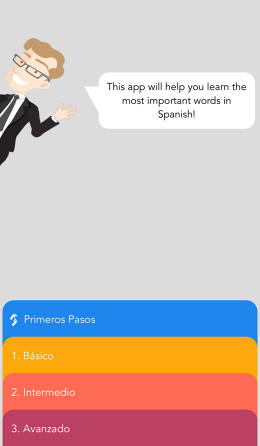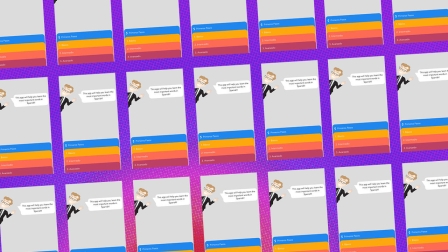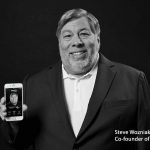How A Groton Geek Won The Education App Sweepstakes
At 3:59 p.m. on Tuesday, July 12, John Conner was fidgeting at his kitchen table. He looked down at his iPhone, then up to the hands of the kitchen clock, then down to his iPhone, and up to the clock again, and down and up again…and you get the picture. Conner, the dean of faculty at Massachusetts’ elite Groton School, is a gentle, slyly ironic man who still dons the occasional seersucker suit and the awkwardly thin tie—the kind of man, in other words, who prefers getting the time from the hands of an old kitchen clock than from the digits on the iPhone in his hand.
The small hand struck four. Conner looked down. Conner’s heart leapt. His app had just been uploaded to the main page of the App store, where it was positioned first among the set of “New Apps We Love,” ahead of the games, the productivity apps, and everything else. And what a sexy beast it was: “Essential Spanish Vocabulary Flashcards.”
“Oh, gosh,” said Conner, who really does talk that way.

The story of how a high school Spanish teacher reached the App Store’s main page is one of those feel-good stories in which ingenuity, perseverance, and an original application of technology combine to overturn industry standards. Over the past four years, Breaking the Barrier, Conner’s four-employee company, has defied the odds and become a top 5 seller of iBook textbooks, right alongside industry giants like Houghton Mifflin, McGraw-Hill, and Pearson. It has succeeded in a notoriously insular business. High school textbook standards are set by state education boards; given their purchasing power, states like Texas make decisions that other states often feel compelled to follow. Big publishers, who can sustain relationships with these boards over decades, have a big leg up. They also have a major incentive to maintain the high profit margins they get from their paper textbooks, which helps explain why kids still lug massive backpacks to school every day, rather than simply toting a Kindle or iPad stocked with e-books.
Conner, who has taught Spanish at Groton for over 30 years, didn’t enter the textbook business to be a disrupter. In 1996, he wrote his own textbook because he hated the one he was using. A small publisher picked it up, and some 20 schools on the East Coast bought it for their students, as did Groton. When his publisher went bust in 2001, Conner founded his own company. It was a small-scale success, selling six titles for French and Spanish classes.

Everything changed in February of 2012, when Señor Conner, as he is called by Groton students, reluctantly agreed to meet with a Worcester, Mass. company called Victory Productions. Alberto Giordanelli, a Colombian developer then working at Victory, showed Conner the kind of work that could be created for iPads via an Apple program called “iBook Textbook,” which had been released just the month before. “I saw pages with fish swimming, exercises that seemed alive,” remembers Conner. He also had the potential to finally, and radically, change his entire way of doing business. He gave Victory the go-ahead. Giordanelli, who left Victory in 2014, has turned all six Breaking the Barrier textbooks into iPad e-books.
Conner shows off BTB’s e-books with the enthusiasm of Steve Jobs crowing about Apple’s iPhones: “Wow!” “Isn’t that beautiful!” “Our technologists are just amazing!” It would all be a little much if it weren’t for the fact that his e-books are indeed superb, and superbly interactive. Each chapter is introduced with a video of Conner giving the kind of lively pep talk you might once have gotten from those great teachers you still remember. Each also includes a Khan Academy-like video capsule zeroing in on a particular problem. There are cultural videos as well; one chapter features an introduction to Argentine music from a studio musician Conner met on an airplane. But it’s not just video. The pages throughout are alive with helpful audio, interactive tests, and clickable maps that help ground the language in its Latin roots.
The vibrant texts are the result of Conner’s close collaboration with Giordanelli. Any time Conner can slip away from Groton, he flies down to Medellin for one- or two-week development sessions with Giordanelli’s team of editors, photographers, and programmers. Their goal: wring the most they can out of iBook Textbook. “What Apple has done with this technology is fantastic,” says Conner. “I think they’re brilliant!” But it wouldn’t be “brilliant” without hours and hours of close, personal attention. That’s easier for a small company like Breaking the Barrier than for big textbook publishers. They tend to put a premium on adherence to guidelines set by state education boards. Creativity is not necessarily high on their list.

A number of other independent companies have cool iPad textbooks and education apps on Apple’s App Store. But not many have enjoyed Breaking the Barrier’s success. Conner has been assiduously wooing Apple over the last four years. Back in 2012, when the duo developed the first chapter of their very first iTextbook, Giordanelli showed it to a contact at Apple. Conner has made seven trips to Cupertino since, getting feedback all along from their education team. He won’t discuss the details of their meetings, but he does hint that an Apple insider told him to pay attention to the “New Apps We Love” list Tuesday afternoon. He also allows that getting this kind of time and feedback from the company is a piece of good luck. “I have to pinch myself,” he says.
Breaking the Barrier’s success might serve as a model for other small education publishers, but it’s probably not, unfortunately, a harbinger of major change in the textbook industry. The offerings from big-time publishers on Apple’s platform are pretty uninspiring. To be fair, its not just that they’re hanging onto their high-margin legacy print business. They’re also worried about safeguarding their digital revenue stream. Financially-strapped school systems have been known to buy iTextbooks once and then use for years, without re-upping their license, as they’re supposed to.
Looking forward, Conner has aligned with a new service called “Copia,” which serves digital educational content to schools via the cloud, with built-in protections for publishers. Copia works with school systems around the world, and has even been in discussions with Chinese school districts. (Conner is already at work on an English text for Chinese-speakers.) And then, of course, there’s his app, which bypasses the school systems altogether. In the 48 hours after its introduction, “Essential Spanish Vocabulary Flashcards” was downloaded 32,300 times: more than the number of print textbooks Breaking the Barrier sells in an average year. As Conner himself might say: “Oh, gosh.”
Fast Company , Read Full Story
(32)













